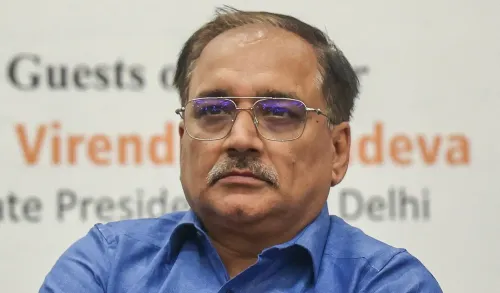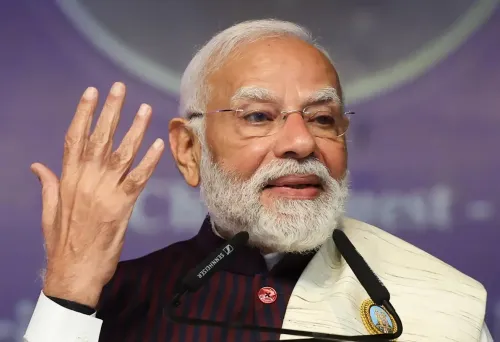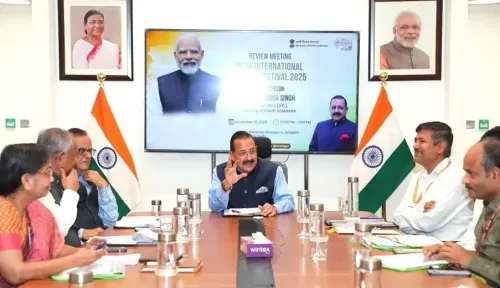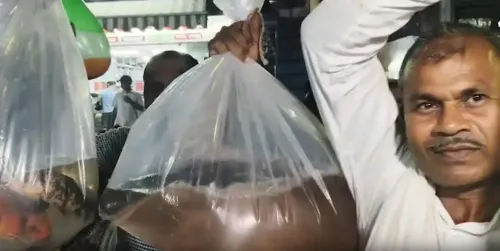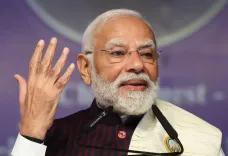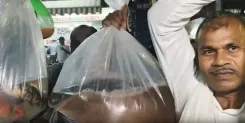Did a Woman Smuggle Rs 47 Crore Cocaine in Coffee Packets at Mumbai Airport?
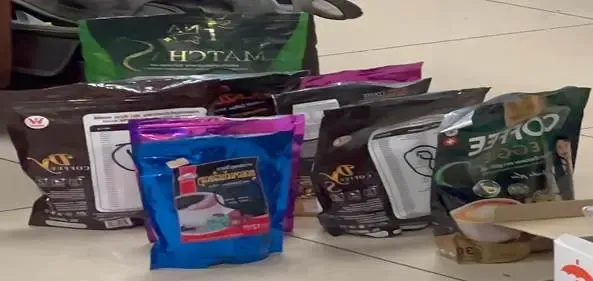
Synopsis
Key Takeaways
- 4.7 kg of cocaine was seized at Mumbai airport.
- The cocaine is valued at approximately Rs 47 crore.
- Five individuals were arrested, including the woman and members of the syndicate.
- The DRI has initiated an investigation into the broader smuggling operation.
- There is an alarming trend of drug syndicates exploiting unsuspecting couriers, particularly women.
Mumbai, Nov 1 (NationPress) A woman arriving at the Mumbai airport from Colombo was apprehended for transporting 4.7 kg of cocaine, with a street value of approximately Rs 47 crore, concealed in nine coffee packets, according to a statement from the Directorate of Revenue Intelligence (DRI) released on Saturday.
The DRI also detained four additional members of the trafficking ring, including one individual present at the airport to accept the shipment and three others involved in financing, logistics, and distribution of the smuggled drugs, the statement noted.
All five individuals are facing charges under the Narcotic Drugs and Psychotropic Substances (NDPS) Act, 1985, as per the DRI.
Following specific intelligence, DRI officials intercepted the female passenger shortly after her arrival and conducted a thorough examination of her luggage, the statement explained.
This investigation uncovered nine pouches filled with a white powdery substance cleverly hidden within coffee packets.
Initial tests using the NDPS field kit confirmed that the substance was indeed cocaine.
Describing this as a significant setback for global drug trafficking operations, the DRI has initiated an inquiry to trace the larger international syndicate behind this smuggling attempt.
Recent seizures by the DRI reveal a troubling trend, where international drug syndicates are increasingly using Indian women as couriers, hiding narcotics in food items to evade detection.
In a different case, last month, the DRI dismantled a large narcotics manufacturing and distribution network in the National Capital Region, arresting 26 foreign nationals and confiscating substantial amounts of heroin, cocaine, and amphetamine, collectively valued at Rs 108.81 crore in the illicit international market.
During this operation, a total of 16.27 kg of amphetamine, 7.9 kg of cocaine, 1.8 kg of heroin, 2.13 kg of ganja, and 115.42 kg of precursor chemicals were seized, amounting to an approximate value of Rs 108.81 crore.
This coordinated operation spanned from October 21 to 23, as detailed in an official announcement.

